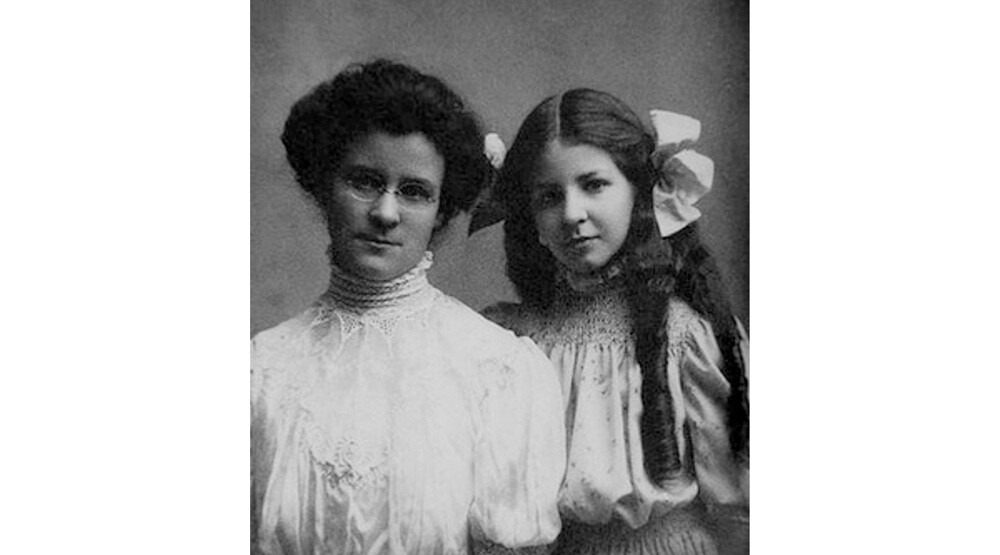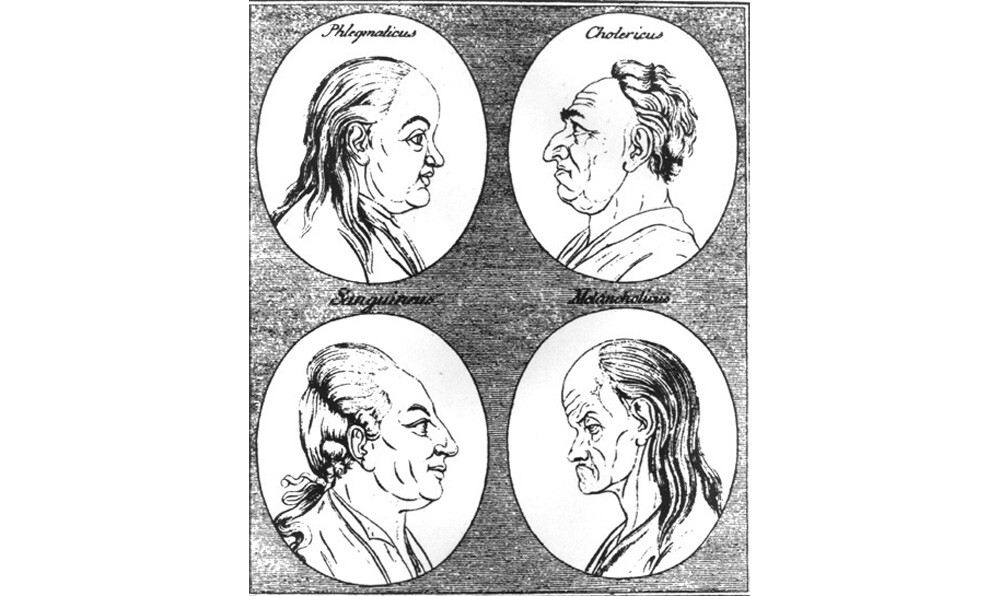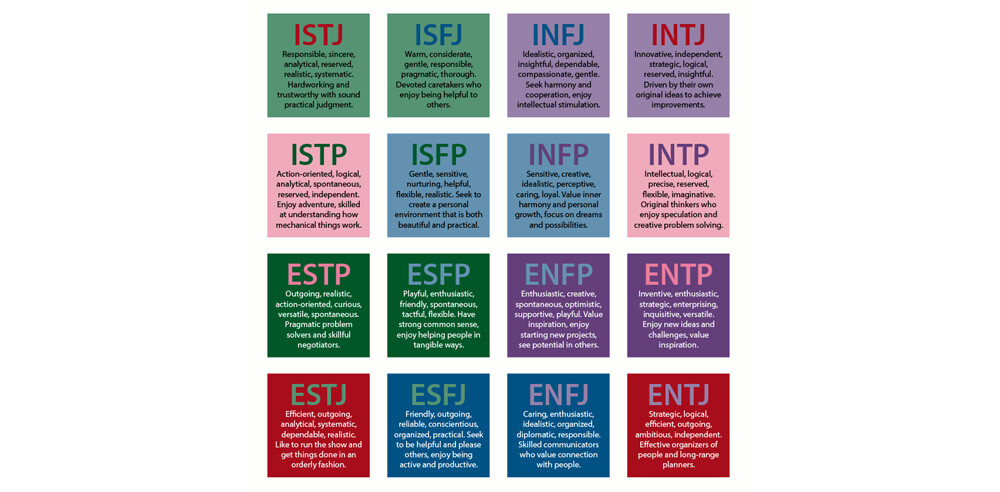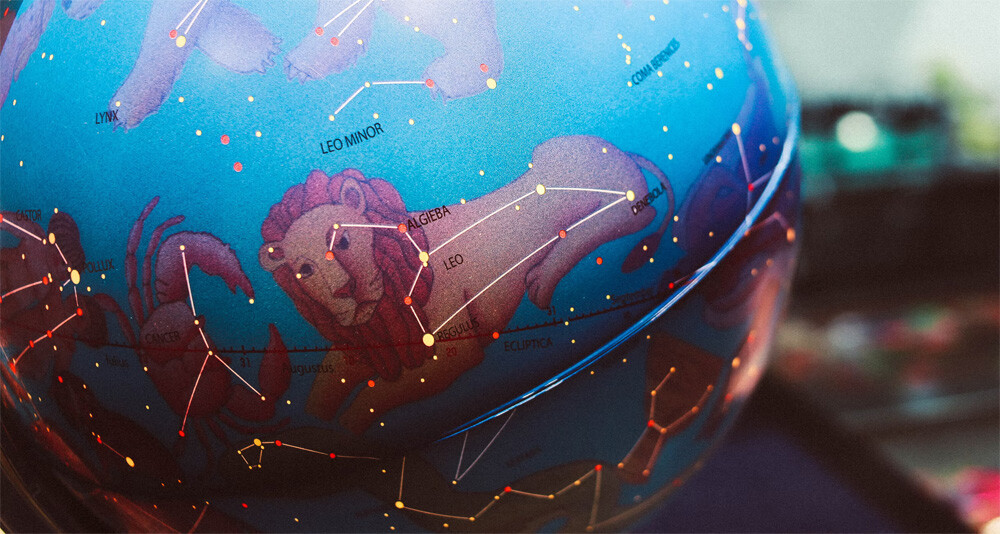Why The Myers-Briggs Personality Test Is Nonsense

If you use social media or dating apps, you’ve seen Myers-Briggs Type Indicators in profiles. INTJ, ENFP, STFU, and so on. The 16 different personalities are shorthand for how you view the world. Essentially horoscopes for people who think they’re too smart for horoscopes, they’re often found alongside words like “Believer in Science” or “I’d let Nikola Tesla touch my spheres.” It won’t shock you to learn that they’re about as predictive as a quiz on the Denny’s children’s menu, but why? And how did we reach the point where they’re so popular?
Developed by Isabel “Knives” Myers and her mother Katharine “Slingshot” Briggs, the MBTI was published in 1944 after years of research, much of it based on the work of Carl Jung. Neither Isabel or Katharine had any formal training in psychology or statistics, although Katharine did have a strong college education that she was forced to abandon as a homemaker.

Katharine wanted to apply her learnedness to motherhood, so she began quizzing children and their parents with the goal of shaping individual development plans. When the MBTI was finally released to the public, it had been tweaked to help women entering the workplace determine what wartime job would best suit them. Insanely, the OSS also used it to help match operatives to missions, and yet the modern test doesn’t even ask us if we’d seduce or strangle an SS officer.
Once the war ended, Myers and Briggs saw their test as a way for people with different personalities to better understand each other. Their work attracted the attention of the Educational Testing Service, which issues tests like the GRE and SAT. When the ETS helped make the MBTI more broadly available in 1962, it was noticed by college professors, some of whom helped develop it further. This all happened during a boom in government and corporate use of personality tests, and the MBTI took off among organizations who thought they could science their way to more efficient workers (or at least convince workers to be happy with roles supposedly perfect for them). The MBTI survived partially because it was superior to a lot of the garbage tests it competed with.

Briggs died in 1968, while Myers would continue to refine the test until her death in 1980. Coincidentally, she also wrote two murder mysteries where the detectives apply a bit of personality type research, including one where the twist is that a family of stuffy Southern aristocrats have been killing themselves upon discovering they’re tainted with, uh, “negro blood.” That old twist.
Meanwhile, Katharine wrote that “enlightened men” were distinguished from “lower orders” by personality, although the MBTI has been revised a million times since the days when it assumed that other tests, like IQ tests, could reveal that some people have no fundamental personality. But Myers-Briggs still has plenty of issues, starting with the fact that basing a test on Jungian archetypes is like basing your surgery on bloodletting. Jung himself warned that his archetypes were only rough concepts and, like the MBTI, they’ve since been discredited almost entirely.

Warner Bros.
Another major issue is that the MBTI focuses on four dichotomies. One category determines whether you use “Feeling” or “Thinking” (hence why the third letter of the results is always either F or T), but you can be a warm, empathetic people pleaser who’s also capable of detached logic when the situation calls for it. And no one is just an extrovert or an introvert like a stock TV character; not only are there too many factors to declare such stark differences, but introversion and extroversion are largely constructs that lack context (you can, for example, be introverted at work around colleagues but extroverted at a party among your friends).
The personality tests used today (in clinical settings, not on BuzzFeed) put respondents on a spectrum. You’re not simply an introvert or a logician, you’re just relatively more or less likely to engage with people and tackle problems in certain ways. That’s why the MBTI fails at predicting how people will react in their professional or personal lives, which is ostensibly the whole point of the test. Plus, if people take the test twice within a few weeks they often get different results, which doesn’t really make it an ironclad concept to build your personality around.

"Whoa, we got 256 types now! We're going to sell so much more merch!"
The Myers & Briggs Foundation argues that the test isn’t meant to be predictive, just descriptive. But then what’s the point of it? Fun? Then sure, go nuts. It’s popular for the same reason horoscopes are popular; it provides vague, feel good characteristics you can easily apply to yourself. The MBTI never spits out “You might have anger issues,” it just tells you how special you are. The types have even picked up cool nicknames. Any conflicts you run into can be written off as a clash between the incompatible “Mastermind” and “Healer,” not you being an incorrigible schmuck.
But the MBTI is used for far more than fun. While the internet has a million knockoffs, the Foundation sells official test materials; getting certified as a fatedealer costs $1,700, and having the test issued will cost an organization up to $40 dollars per person. They brag that the test is used by “more than 88 percent of Fortune 500 companies in 115 countries,” but talk of clinical use is glaringly absent.

So it’s easy to find stories about HR people explaining employees’ personalities to them, job interviews factoring this nonsense into hiring decisions, or career counsellors setting people on the wrong path. This management tools company helpfully suggests that the MBTI can spot which interviewees “will drive toward stability versus innovation,” who will be motivated by “financial incentives, social recognition, or true stories of positive impact on clients,” and whether potential promotions will be the “next chapter of growth” or “detrimental.”
I would argue that employees are better motivated by good pay and benefits than “true stories of positive impact on clients,” but if this is stressing you out, don’t worry; job hunters can study up with tips like “How to calm job interview nerves, based on your Myers-Briggs type.” It is, if nothing else, a masterclass in stretching out simple advice.

"Gee, thanks! Clearly, that advice only applies to us ENFPs."
That kind of pseudoscientific advice is everywhere. The military suggests that spouses take the test to help with “career planning and relationships.” A fleet of Cosmo knockoffs will give you dating advice based on your type, or you can join So Syncd, the MBTI-based dating app. Again, they make every type sound awesome; whether you fall in with the “Idealists” or the “Guardians,” there’s no type prone to leaving their dirty socks on the floor. You can use your MBTI type to seek career advice, decorate your home, plan your dinners, learn how to communicate, or name your baby.
Remember when I said this is, to a point, no worse than glancing at your horoscope? Well, astrology is, perhaps not coincidentally, experiencing its own boom. While younger people are growing more likely to believe that astrology has at least some scientific basis, it’s become most popular among folks who insist they don’t take it seriously, yet still identify with its broad framework as a tool for self-reflection. In other words, just because Mercury isn’t really encouraging you to make some changes, it can still be helpful to pretend it is.

But is a framework really helpful if it’s rickety and termite-riddled? Reddit’s 305,000 strong MBTI community thinks so, as they speculate on which types are most prone to confirmation bias or discuss how hard it is to be one of the introvert types (shockingly, online MBTI communities tend to be more popular among people who the test verifies as genius introverts). Then there are all the hit YouTube videos, from “Top 10 signs you’re an INTJ | 1.9% of the Population” to “What MBTI type is Elon Musk?” JKAS, presumably, but if you’re basing your sense of self on a misconception then what is it really based on?
Research suggests we turn to astrology and its ilk when stressed, because it can provide guidance and a sense of order. Being a person is complicated; being an INTJ or a Leo or a Sigma Male is easier. It’s a stable identity amid the chaos of life. If someone can find guidance from Myers-Briggs without building their whole life around it, well, we all need guidance from somewhere. But there’s something bleak about carving humanity up into immutable categories based on fundamental misconceptions like we’re in a YA dystopia. And now, increasingly, those categories are used to sell T-shirts and churn out pandering YouTube videos and flood the internet with junk articles.

These are salad days for pseudoscience, and the popularity of astrology and personality tests are, while far from the most egregious symptom, signs that people need something to cling to during scary times. Ironically, the author of a book on the history of the personality test, Merve Emre, suggested that Myers and Briggs would be “appalled” and “disappointed” by the “unregulated fashion the indicator was allowed to circulate.” The intent was never to let people perform amateur analysis on themselves in lieu of avoiding deeper issues. But most ideas become more popular when you can start interpreting them for yourself, even when you really, really shouldn’t.
Anyway, sorry to get all INTJ about this.
Mark is on Twitter and wrote a book.
Top image: ONEGEN7/Wiki Commons





